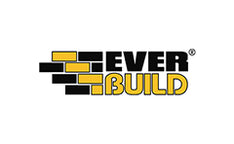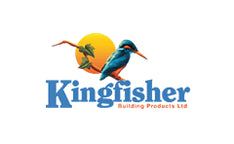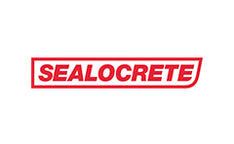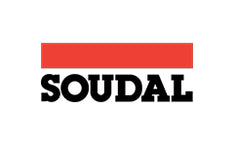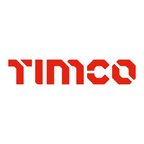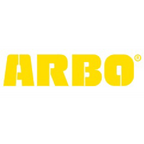The right screws for the right wood
When you’re starting a DIY or woodworking project, choosing the right screw often seems like the easy part. After all, a screw is just a screw… right? But anyone who has ever tried to drive a brass screw into oak without a pilot hole — only to watch it shear in half — knows that the type of wood makes a huge difference.
Softwoods, hardwoods, sheet materials, and outdoor decking timbers all behave differently under pressure. Some allow screws to glide in easily but struggle to hold them securely, while others grip like iron but punish you for skipping steps. Understanding how wood type affects screw choice and technique is one of the most valuable lessons for any DIYer.
Let’s break it down.
Softwoods: Easy to Work, But Easy to Strip
Softwoods such as pine, spruce, and cedar are the most common timbers you’ll encounter in DIY. They’re relatively light, inexpensive, and forgiving. Drive a screw into pine and it will usually bite without much resistance — sometimes so easily that you don’t even need a pilot hole.
But there’s a catch. Because the fibres are softer and less dense, screws can strip out the hole if they’re overtightened. Over time, joints in softwood may loosen as the wood compresses around the threads.
Best approach: Choose screws with a coarse, aggressive thread (chipboard or decking screws work well), opt for longer lengths to increase grip, and drill a pilot hole if you’re close to the edge where softwood can split unexpectedly.

Hardwoods: Strength and Risk in Equal Measure
Hardwoods like oak, beech, ash, and teak are the opposite of softwood — dense, tough, and full of character. Their fibres are tightly packed, which means screws grip incredibly well. A screw driven properly into oak will hold far more securely than in pine.
The trade-off? They’re unforgiving. If you try to force a screw into hardwood without preparation, you risk splitting the timber or snapping the screw. Even hardened steel screws can twist apart under pressure if driven in too aggressively.
Best approach: Always drill a pilot hole (slightly smaller than the screw’s core), use a countersink bit when you need a flush head, lubricate screws with wax or soap to help them cut smoothly, and prefer tougher screws such as hardened steel or stainless over softer brass unless the screw is purely decorative.

Sheet Materials: A Mixed Bag
Modern DIY projects often involve manufactured boards such as MDF, plywood, OSB, or chipboard. Each has its quirks:
MDF is dense and smooth, but the fibres crumble easily. Screws can cause the surface to bulge or mushroom unless you drill a pilot hole and countersink. Chipboard/OSB have a rough, loose structure; standard wood screws may not hold well, while specialist chipboard screws with deep threads are far more reliable. Plywood is layered and generally strong, but can split along edges; it holds screws well in the face grain but needs careful drilling near the ends.
Best approach: For MDF, always pilot drill and countersink to keep the surface neat. For chipboard/OSB, use chipboard screws or confirmat screws designed for these materials. For plywood, pre-drill at edges and avoid overtightening.
Outdoor Woods and Decking Timber
If you’re building a deck, fixing fence panels, or working with pressure-treated timber, the issue isn’t just holding strength — it’s survival. Moisture, tannins, and outdoor exposure will attack standard screws, causing rust, staining, or even structural failure.
For outdoor use, material matters as much as head type or length. Stainless steel (A2 for general outdoor use, A4 for marine or coastal environments) is the gold standard. Green-coated decking screws are another excellent choice, as their protective finish resists corrosion and blends visually with treated timber.
Tropical hardwoods such as ipe or balau present a double challenge: they’re extremely dense and often used outdoors. That means you need both corrosion resistance and good driving technique.
Best approach: Always use stainless steel or high-quality coated decking screws; drill pilot holes (especially in dense hardwood decking boards); choose screws long enough to account for seasonal timber movement; and avoid ordinary zinc-plated screws outdoors.

Matching Screws to Wood: General Guidelines
So, does the type of wood affect which screws you should use? Absolutely. In fact, it’s one of the key factors in successful woodworking. As a quick recap:
- Softwood: Coarse threads, longer screws, pilot near edges.
- Hardwood: Pilot holes essential, stronger screws, lubrication recommended.
- Sheet goods: Specialised screws (chipboard/confirmat), careful drilling and countersinking.
- Outdoor woods: Stainless or coated screws, longer lengths, never cheap zinc outdoors.
Think of screws and wood as a partnership: the denser the wood, the more preparation and screw strength you need; the softer the wood, the more you rely on coarse threads and depth.
Quick Comparison: Matching Screws to Wood Types
| Wood Type | Challenges | Best Screws | Tips |
|---|---|---|---|
| Softwood (Pine, Cedar, Spruce) |
Fibres compress easily, screws may strip out | Coarse-thread wood screws, chipboard screws, decking screws | Use longer screws for grip, drill pilot holes near edges |
| Hardwood (Oak, Beech, Teak, Ash) |
Dense fibres, risk of splitting and screw breakage | Hardened steel or stainless screws | Always drill pilot holes, use countersink bits, lubricate screws |
| Sheet Goods (MDF, Chipboard, Plywood, OSB) |
Prone to crumbling or delamination | Chipboard screws, confirmat screws | Pre-drill, countersink for MDF, avoid overtightening near edges |
| Outdoor Woods (Decking, Treated Timber, Exotics) |
Moisture causes corrosion, hardwood decks are very dense | Stainless steel A2/A4, coated decking screws | Always use corrosion-resistant screws, pilot hole hardwoods, avoid zinc screws outdoors |

Final Thoughts
Screws may be small, but in woodworking they’re a vital link between material and structure. Understanding how different woods respond to screws not only saves frustration — it ensures your projects are stronger, safer, and built to last.
So next time you reach for a box of “general-purpose” screws, pause and ask: What wood am I working with? The answer will tell you everything you need to know.






